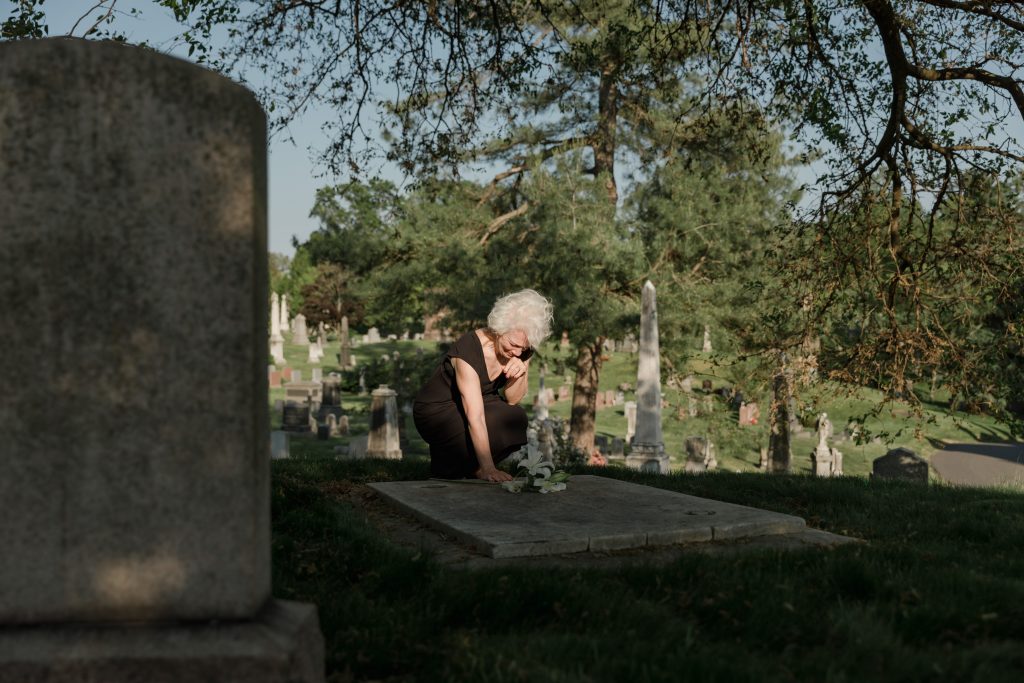LEARN SOMETHING NEW
Therapy Blog for Orem, Spanish Fork & South Jordan
Counseling: Understanding Another Myth About Grief
Counseling: Another Myth About Grief
Grief is complicated, and if you are grieving a loss or thinking about starting grief counseling, you probably hear lots of advice from well-meaning friends and family. Some of this advice might help bring you comfort, but some of it might be counterproductive for healing after loss. (Related article: How to Talk to Someone in a Crisis).
So, how can you understand and cope with loss? Today, you will learn more about a common misconception about grief, and you will also learn a better approach for your own grief process.
Grief Myth #2: “If I can just get through the stages of grief, my grief will go away.”
You are probably familiar with the Five Stages of Grief: denial, anger, bargaining, depression and acceptance. Each describes a “stage” you will experience related to your grief. For example, someone might say that if you are angry about the loss of your loved one, you are in the “anger phase of grief”.
Many incorrectly believe that the stages are different steps you move through one by one, and then you reach a finish line where your grief is over. Honestly, that sounds great! However, grief is not that simple. Your grief is not a checklist to be completed. Instead, it is a process with ups and downs that is not linear.
Loss is Not Linear
Now, that doesn’t mean the five steps of grief can’t help you understand the feelings you might experience as part of your grief. However, it’s important to remember that you might feel one or two or all of the stages of grief at once. Maybe at first, you are in denial about your loss. You wake up and experience the feeling of “forgetting” that your loved one is gone. However, you probably also experience a combination of the other stages, too! For instance, maybe you simultaneously experience feelings of depression and sadness every time you realize those experiences of denial. And, that might change hour to hour and day by day. (Related Article: How to Be Emotionally Healthy).
You might have days that seem much better and days that are hard, even long after your initial loss. Your mourning and healing will not be linear.
Growing With Your Grief
So, what can you do about it? How can you develop resilience when it comes to coping with grief? A potentially better way to think of working through your grief is the idea of “growing around your grief”. To help you visualize this idea, some counselors like to use the example of a ball in a box.
When you first experience loss, you are like a box that has a large ball inside of it. And, at first, the ball is big- nearly as big as the box! In fact, it might feel like it is going to break through your box and try to escape, like it wasn’t meant to fit there. It touches all of the sides of your box, no matter which way you try to move it. Your grief might seem this way, at the beginning. Your grief might constantly interrupt your day and “touch the box”. The ball can make it hard to enjoy your daily life and find peace after loss, and it might seem like it will only get bigger. 
Thankfully, no feeling lasts forever, and your feelings of overwhelming grief are no exception. But, you might be surprised to find that the grief itself does not shrink- instead, you grow around your grief. With time, effort, and intention, you will be able to grow your box so that the ball is not a constant disruption. You will know it is there, but it won’t seem like it is so large it could burst.
With a bigger box, the grief will be much more manageable. Sure, you will still have days where the ball touches the box. But, you will have the tools and experience to acknowledge and navigate your grief in a productive way.
How to Start Growing with Grief Counseling
Sure, this all sounds great in theory, but what can you do to grow the box? How can you move forward when the smallest things in your life feel overwhelming due to grief? (Related article: Resilience). Your experience with grief will be individual, so there are many approaches that can help you learn and grow around your grief.
Meeting with a therapist for grief counseling is a great place to start. In counseling, your therapist can work with you to understand the origin, nature, and circumstances of your loss. From there, they can help you learn how to cope with your grief and grow around it, as a result. (Related article: Individual Counseling: What it is and What it isn’t)
That’s where we can help. Ready to start grief counseling? Schedule an appointment with one of our therapists today in Orem, South Jordan, or Spanish Fork.


